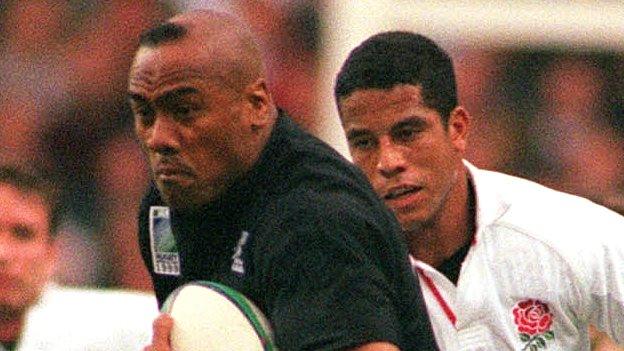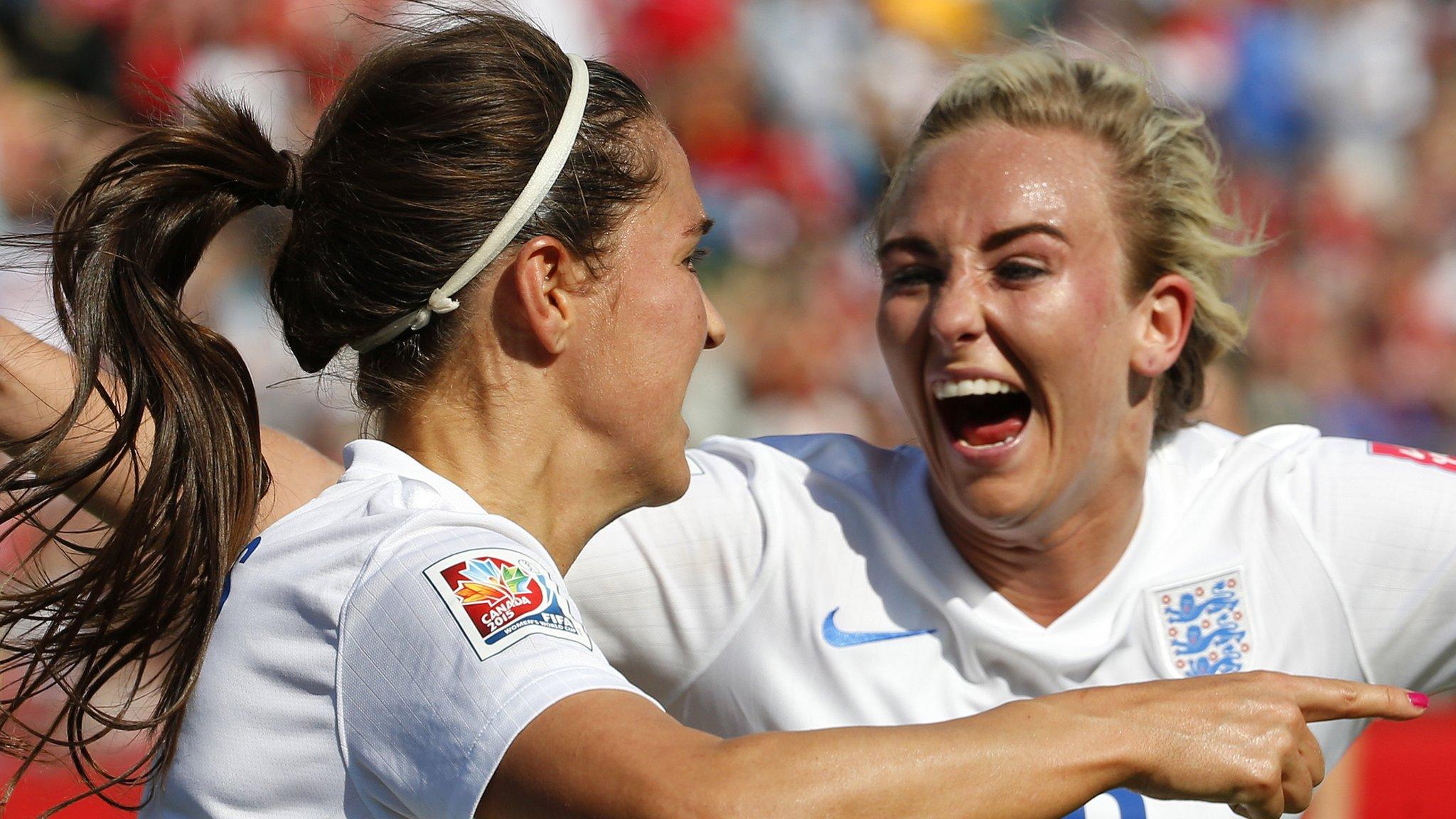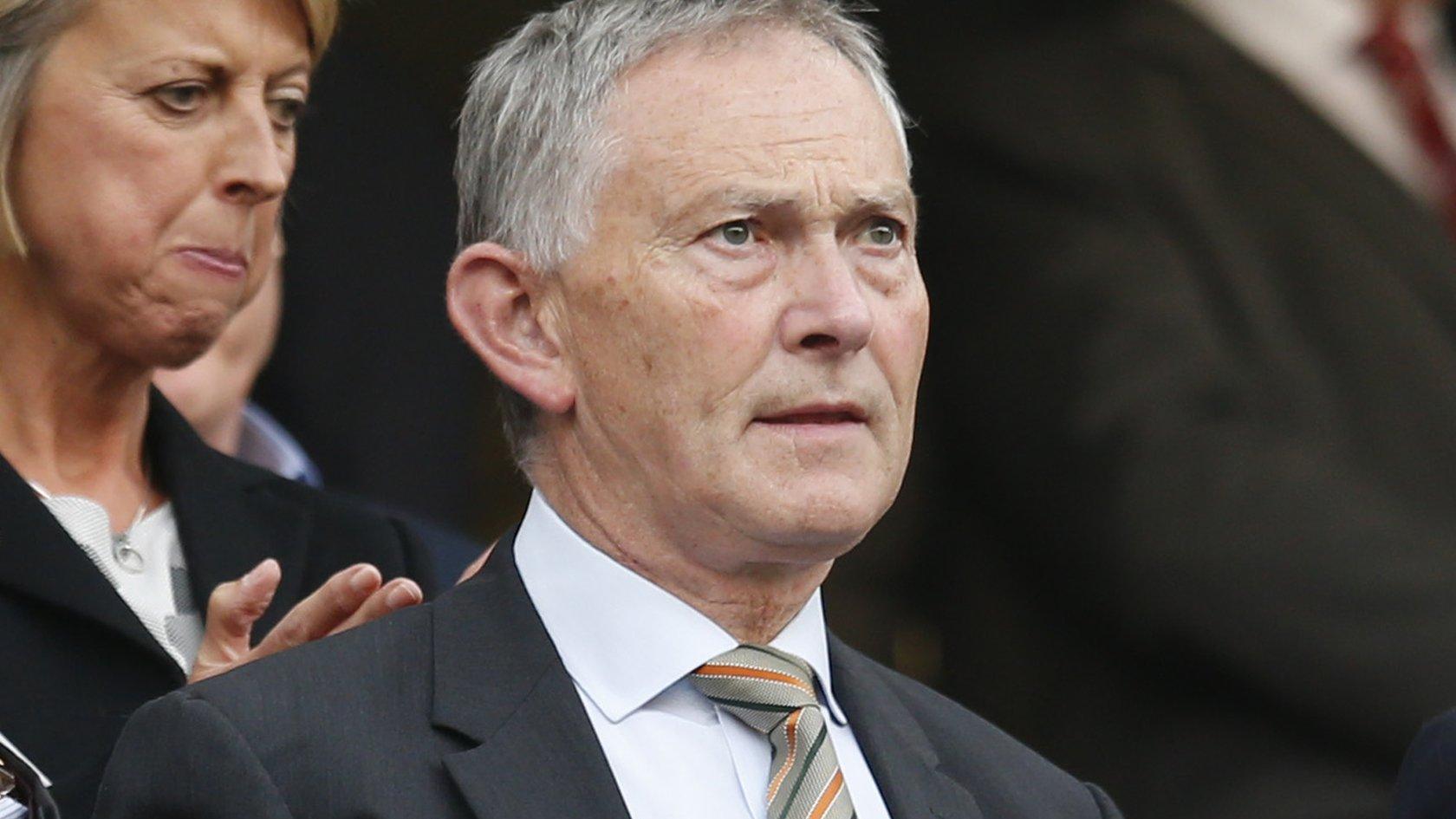Athletics doping scandal: Russia ruled in breach of Wada code
- Published
Russia doping crisis in 60 seconds
Russia is one of six countries ruled to be in breach of the World Anti-Doping Agency's codes.
Along with Argentina, Ukraine, Bolivia, Andorra and Israel, it has been deemed "non-compliant" by Wada.
Brazil, Belgium, France, Greece, Mexico and Spain have been placed on a 'watch list' and must meet strict conditions by March 2016 or face similar action.
Meanwhile, Kenya has been ordered to explain its doping controls or join those countries under scrutiny.
Wada said that if Kenya's answers are "unsatisfactory", it could also face sanctions. There are 15 Kenyans currently banned for doping by athletics' governing body the IAAF.
The "non-compliant" countries have failed to respond fully to Wada's request for information and Argentina, Bolivia and Ukraine have been found to be using non-accredited laboratories, which is a breach of the code. Andorra and Israel did not have correct rules in place.
Drug testing will continue, but it will be carried out independently and the country in question will foot the bill. This will continue until the country reinstalls quality anti-doping programmes.
Wada cannot prevent athletes from "non-compliant" countries competing - such a decision is taken by organisations such as the IAAF and International Olympic Committee.
Russia's athletics federation is already provisionally banned from international competition for its alleged involvement in widespread doping.
The IAAF imposed the sanction after a Wada independent commission report, external accused the country of "state-sponsored doping".
The head of the Russian doping laboratory accused by the Wada report of destroying more than 1,400 blood and urine samples, has left his position, and the laboratory has had its accreditation suspended., external
Message could not be stronger - Coe
However, the report's co-author Dick Pound said it would be "child's play" for Russian athletics and Rusada - the country's anti-doping organisation - to meet the conditions in time to compete in Rio.
"I don't think you'll get the culture fixed in nine months but you can do actions that will come to the same result," Pound said.
"In a sense, I don't care whether you're there with clean athletes if the only reason is fear of getting caught, as opposed to thinking that's the right thing to do. Listen, Russia built Sochi in seven years. This is child's play."
The country's Sports Minister Vitaly Mutko said Russian athletics will co-operate "in any way", external to prove it is clean.
Pound's report stated Russia was not the only country with anti-doping issues, and that athletics was not the only sport with those problems.
Pound also alleged Kenya has a "real problem with doping".
However, during a two-day meeting in Colorado Springs in the United States, Wada said it was "encouraged" by reports the Kenyan government is committing funding to its national anti-doping programme.
Last week, the country approved the immediate establishment of an anti-doping agency. The government said the new agency will carry out testing and ensure compliance with doping rules.
The head of Kenya's Olympic committee, Kipchoge Keino, has accused his government of complacency.
'We are at a crossroads'
Travis Tygart, chief executive of the United States Anti-Doping Agency, said athletics is "at a crossroads" and declared the current investigation is the biggest since Wada was formed in 1999.
"We have to decide," he told BBC Sport. "Are we going to end up regulating ourselves to be a toothless bureaucracy or are we going to roll up our sleeves and get into the field of play and win this fight for clean athletes? The eyes of the clean athletes are watching.
"I don't think we have seen something on this scale since Wada took over. It far eclipses anything we have seen from corruption and impacts on the rights of clean athletes. It is why it is so important.
"We, as the world anti-doping community, have to step up for them and support their decision to do it the right way or we might as well walk away and throw in the towel and quit the charade."
- Published19 November 2015

- Published19 November 2015

- Published19 November 2015

- Published18 November 2015
